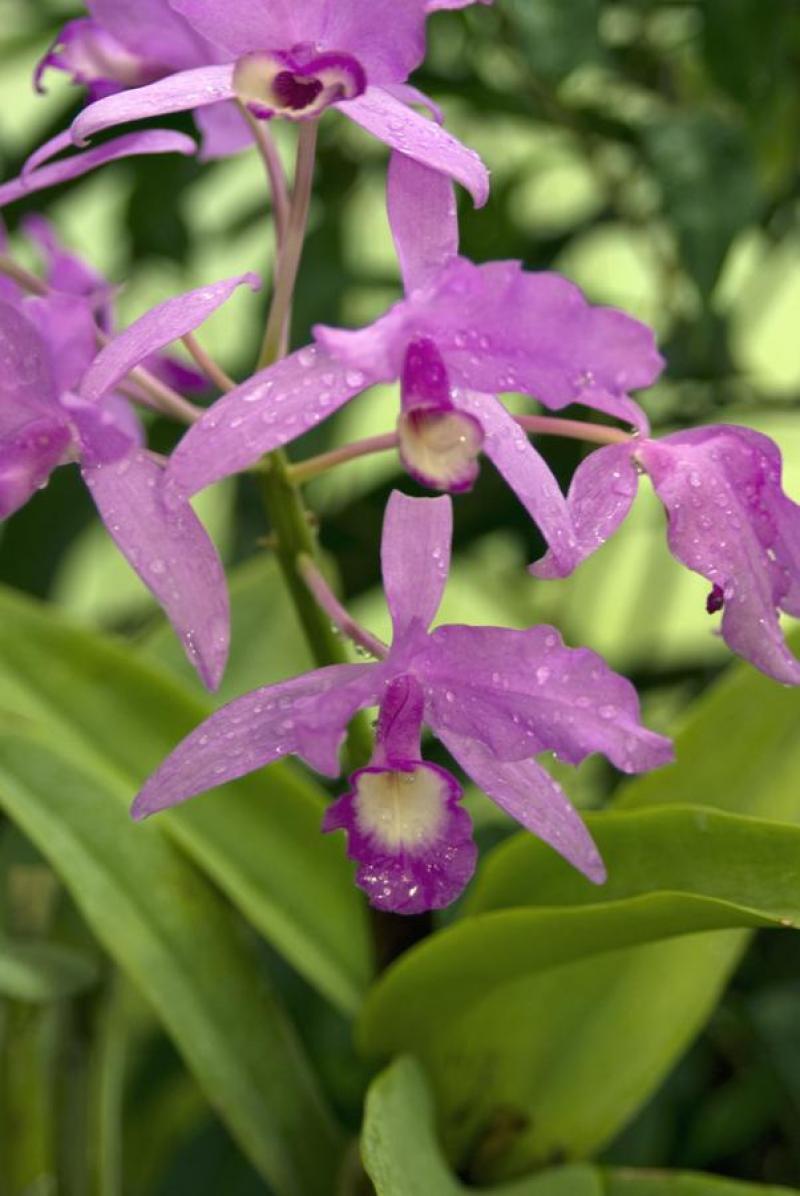Guarianthe skinneri
Also known as: Guaria Morada or Cattleya skinneri h.f. patini Cattleya skinneri h.f. semialba Cattleya skinneri h.f. virginalis Cattleya skinneri h.f. coerulescens Guarianthe skinneri h.f. coerulescens Cattleya deckeri h.f. alba Cattleya skinneri h.f. oculata Cattleya skinneri h.f. delicata Cattleya skinneri h.f. alba-oculata Guarianthe skinneri h.f. suavissima Guarianthe skinneri h.f. coerulea Guarianthe skinneri h.f. albescens Guarianthe skinneri h.f. alba-oculata Guarianthe skinneri h.f. rosea Guarianthe skinneri h.f. semialba Guarianthe skinneri h.f. oculata Cattleya deckeri h.f. coerulea Epidendrum huegelianum Cattleya skinneri h.f. rosea Guarianthe skinneri f. alba Cattleya laelioides Cattleya skinneri h.f. albescens Cattleya deckeri Cattleya skinneri f. alba Cattleya pachecoi Cattleya skinneri h.f. coerulea Cattleya skinneri var. alba in the subfamily: Epidendroideae
Native to: Belize Mexico
General Information
Guaria Morada is a sympodial cool to warm growing epiphytic orchid belonging to the sub family Epidendroideae native to Belize and Mexico.
Plant Description
Sympodial. Grows to 50cm. Each new growth has numerous leathery rigid leaves that grow to 5-20cm long. Pseudobulbs grow to 35-50cm
Flowers
Numerous fragrant blossoms appear during Autumn, Winter and Spring
Fragrance
The orchid is fragrant.
Blooming Season
- Autumn
- Spring
- Winter
Substrate(s)
- Coarse
- Bark
- Charcoal
Care Notes
This orchid goes into a dormancy phase during winter, during this phase it is best not to provide water unless the plant is starting to look thirsty. The lack of water increases the chance of flowering in spring, and also reduces the likelihood of any rot forming. Do not resume watering until new growth has appeared and is growing strongly.
Often a period of intense growth occurs after dormancy. During this time the amount of light, water and fertiliser the plant receives will directly impact the amount of growth that occurs during this time, and in the case of seedlings, will reduce the time required to reach maturity.
It's recommended to heavily reduce the water amount at the middle to end of autumn to trigger dormancy. Leaves on older bulbs will begin to drop during this time while the newer bulbs continue to mature until terminal leaves appear at the tip of the pseudobulbs.
Repotting can be done any time of the year though it's best to do it in early spring when new growth is appearing as this also means new roots will appear to help the plant anchor into the new media and offset any damage to established roots during the repotting process.
Fragrant:
- IsFragrant
Climate
Grows at low to high elevations. Rainfall ranges from 5mm to 305mm per day, heaviest in September and lightest in February. Humidity ranges from 68% to 85%, highest in October and lowest in March. Temperature ranges from 16C to 28C, highest in May (18C to 28C) and lowest in January (16C to 25C).
Watering
Keep moisture levels up during hot weather as the plant is prone to dehydration
Fertiliser
dormant-medium-demand-orchid Apply fertiliser regularly at half strength year round. Use a high Nitrogen fertiliser during Spring and Summer. Use a high Phosphorous fertiliser during Summer. Reduce fertiliser when plant is dormant during Spring.
Potting
These plants are quite forgiving and will do well repotted ever 2-3 years. The mix should be coarse, well draining, and allow space for air to move and for roots to grow.
Alternatively, these plants will also do well mounted to tree fern or cork slabs, or mounted to trees.
Best time for repotting or mounting the orchids is the end of winter when new growths start to appear. Avoid repotting during hot weather,
This plant does very well in baskets or suspended pots This plant does well mounted to Cork slabs or Stone slabs.




















